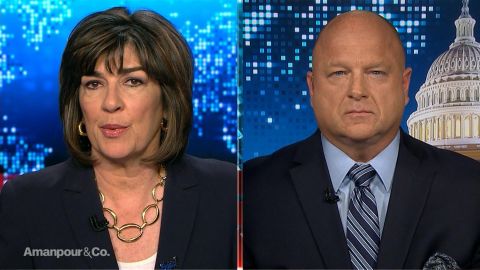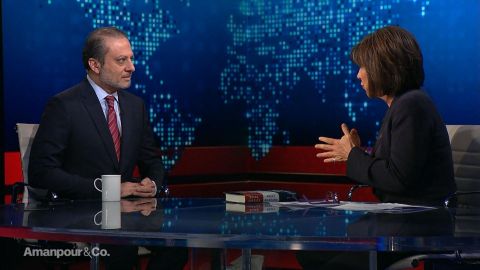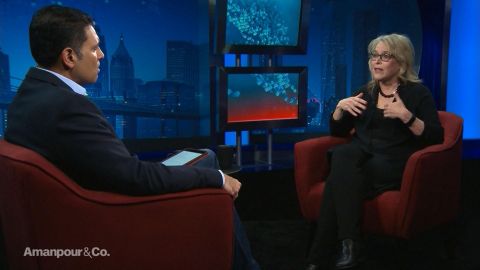Read Transcript EXPAND
CHRISTIANE AMANPOUR: What is a better way? I mean, this is not going to stop, the migration around the world. I wonder if you’ve ever just sort of put that hat on and wondered whether there’s a way to deal with this stuff, particularly with climate change which is going to bring hundreds of millions of migrants, either up north here or to Europe from the Southern Hemisphere.
PREET BHARARA, FORMER U.S. ATTORNEY, SOUTHERN DISTRICT OF NEW YORK: Well, as far as dealing with illegal immigration, there are various methods both law enforcement methods and sophisticated technological means, observation at the border. And I did work in the Senate on the Judiciary Committee for four-and-a-half years and, you know, comprehensive immigration reform was something that almost seemed within sight back in 2006 when you had a Republican president, George Bush, whose party has not always been great on immigration issues but he felt strongly that we should have a comprehensive immigration reform bill. And John McCain was still alive, and he was a Republican who felt strongly about that. And you had Democrats controlling the Congress.
So, you know, overall a path to citizenship for, you know, 10, 11, 12 million people who are otherwise living in the shadows, I think you have to be smart about how you monitor employers, and we don’t talk about that so much. This sort of medieval concept of you build a wall of concrete or steel slats or as Nancy Pelosi once say, you know, a beaded curtain or something, it doesn’t make a lot of sense in the modern era. I think there are ways. If smart people get together on a bipartisan basis and come up with some solution, I think we’re going to have better success.
AMANPOUR: And this is not going to end until there is a bipartisan immigration reform, presumably.
BHARARA: Yes. It’s — the problems caused by gang violence and drug trafficking and some aspects of illegal immigration are felt by everyone of the country, not just the people at the border.
AMANPOUR: And even here in the State of New York.
BHARARA: And are felt by Democrats and Republicans. And the only way to go forward on issues that are that massive, you know, infrastructure as well, have to be on a bipartisan basis and have to be done, by the way I think also, without meanspirited terrible xenophobic rhetoric.
AMANPOUR: Let’s get to the Bob Mueller report and the fallout. So, obviously, the president says that he’s been totally exonerated. We know what the language was, according to the attorney general, that he concluded Mueller, that a crime or conspiracy was not conducted between the Trump administration and the Russians or that there wasn’t the evidence to conclude that, but that he was not exonerated either. What do you make of the crime piece of it and the obstruction of justice piece of it?
BHARARA: So, on the one, as you said, again, I should just point out that we’re having this conversation in the absence of the Mueller report.
AMANPOUR: You know, I should have pointed that out because —
BHARARA: Which we know —
AMANPOUR: — we don’t actually have proper conversation until we see the whole thing.
About This Episode EXPAND
Christiane Amanpour speaks with David Urban about President Trump’s 2020 campaign; and Preet Bharara about his time as the U.S. Attorney for the Southern District of New York, before he was fired by President Trump. Hari Sreenivasan speaks with Dr. Rachel Yehuda about the effects of PTSD.
LEARN MORE


